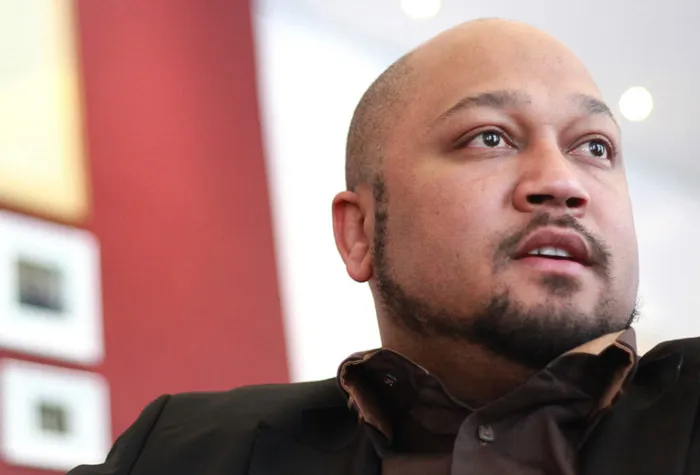My journey to agnosticism

Eusebius McKaiser. File picture: Jason Boud Eusebius McKaiser. File picture: Jason Boud
I remember bowing in front of the altar and walking up three or four stairs, towards my left, where the Holy Communion was to be prayed over before Father was to give these to eligible parishioners who are all too keen on chowing the body of Christ every Sunday morning.
My role, as altar boy, was to be Father’s little helper. Except, I made a small, but excruciating, mistake. I wasn’t the boy designated to help Father with this part of mass. The altar boy who actually had this duty assigned to him had already got into position to help Father. I followed him blindly, this being my first appearance at St Mary’s Church in Grahamstown as a young altar boy. I was meant to sit still during that part of mass, rather than doubling up for a duty that requires only one pair of young hands.
I could hear the kids, all sitting in the front of the church, chuckling. They knew instinctively that I had messed up. I must have been, I don’t know, about 10 years old. I could feel millions of eyes staring at me, and parishioners cringing on my behalf. Such is the overactive imagination of a little boy.
Needless to say, that was the first and last time I ever appeared in the spotlight around the altar as one of Father’s little helpers. Just as well, perhaps, because I never quite felt the same closeness to Catholicism as other boys in my neighbourhood who were assigned these traditional roles throughout boyhood, some graduating to other roles when older: becoming a reader, a lay minister, member of the choir or even a member of the parish council.
Just as I ran away from altar service after that Sunday, so I slowly retreated from Catholicism in my teen years. This despite my grandparents’ house being a shrine to all things Catholic, including Holy Water at the entrance to our house into which you had to dunk a finger, and make the sign of the cross before entering; a round sign on the window facing the street with the message “This is a Catholic Home”; inside you were greeted by a huge portrait of Mother Mary looking both perfectly beautiful and terribly sad; and, in every room, you were likely to find a Holy Rosary waiting for a prayer meeting.
Every night the children had to say prayers aloud before going to bed and, on Saturday evenings, my grandfather made me read the following day’s gospel reading for him so that he could reflect on it before even going to mass. His friend, Oom Joey, would sometimes join him, and I would read for them both before listening to their discussion of God’s wise words.
Over Easter weekend, I always think of my early years of growing up with Catholic adults in a house where Catholic ritual was sacred. Since then, however, I have rightly abandoned not just Catholicism but also Christianity more generally. My grandfather would be appalled, no doubt, and my family probably prays regularly for me.
My rejection of Christianity was rather undramatic. It wasn’t the result of any interesting rebelling against Church teachings that weren’t fun to follow. It wasn’t the result of some historic analysis of the role of religion in conflicts throughout history.
Nor was it an early awareness of the metaphysical magic one has to believe in order to be a good Catholic taking their articles of faith seriously. My rejection of Christianity was gradual throughout high school – church was simply increasingly uninteresting – and accelerated during my undergraduate years as I studied philosophy.
Many great philosophers are theists, so the study of philosophy doesn’t inevitably lead to atheism or agnosticism. But if you don’t stuff around with your studies then you ought, if your lecturers did a decent job, to start thinking critically about your beliefs.
Such critical thought may not topple your beliefs about some “higher” being. Or it may. But you should, in either case, only be satisfied with being able to explain and defend your beliefs.
Faith shouldn’t satisfy anyone with a brain. In my case this critical reflection led to agnosticism. I do not believe there is sufficient evidence that God exists. Nor is there sufficient evidence that God does not or can’t exist.
While my arguments for these claims must await future writing, my agnosticism means that I regard both believers and atheists as holding unjustified views.
Also, no one needs God’s teachings to distinguish right from wrong. Unless you refuse to think for yourself. My agnosticism isn’t fence-sitting; that being a caricature that exposes poor philosophical training on the part of an accuser.
Agnosticism reflects deep commitment to evidence-sensitive belief. But I still enjoy pickled fish on every Good Friday. Because tasty habits are hard to get rid of.
* Eusebius McKaiser is the best-selling author of A Bantu In My Bathroom and Could I Vote DA? A Voter’s Dilemma. His new book - Run, Racist, Run: Journeys Into The Heart Of Racism - is now available nationwide, and online through Amazon.
** The views expressed here do not necessarily reflect those of Independent Media.
CAPE TIMES